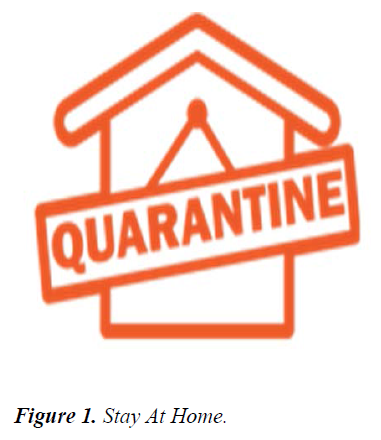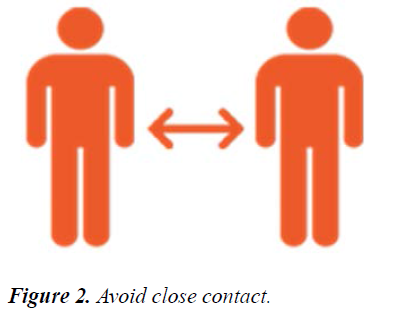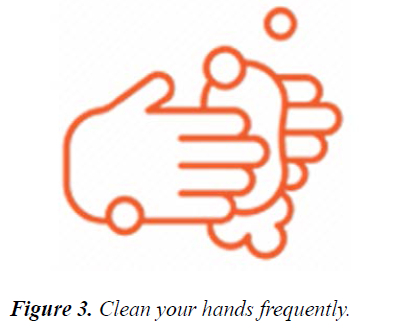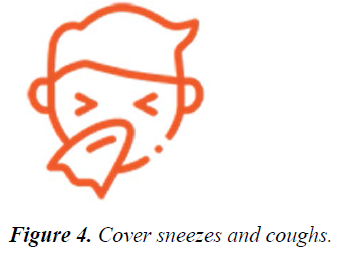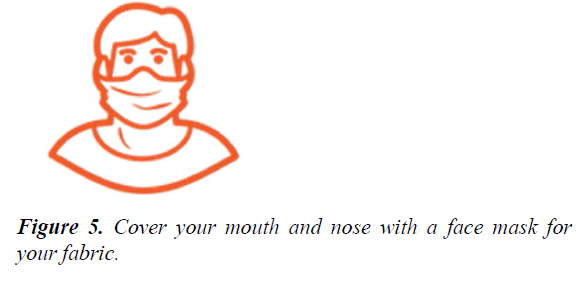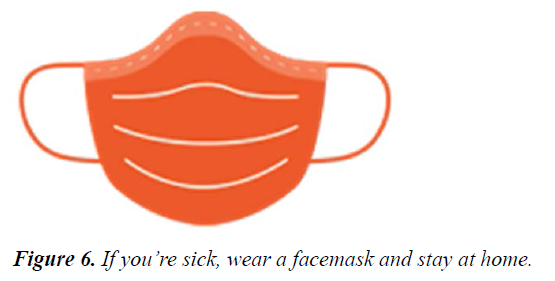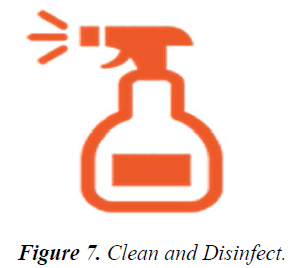Research Article - Journal Clinical Psychiatry and Cognitive Psychology (2021) Volume 5, Issue 3
Stress management during COVID-19 pandemic
Vaishali Balpande*, Minal Dambhare, Priya Rewatkar, Priya Dhankasar, Pallavi Dhole, Ashwathy NairDepartment of Nursing, Florence Nightingale Training college of Nursing, Wardha, Maharashtra, India
- *Corresponding Author:
- Dr. Vaishali balpande
Department of Nursing
Florence Nightingale Training college of Nursing
Wardha, Maharashtra, India
E-mail: vaishalibalpande16@gmail.com
Accepted date: 14 April, 2021
Citation: Vaishali B/Dambhare /Rewatkar P/et al. Stress management during COVID-19 pandemic. J Clin Psychiatry Cog Psychol 2021;5(3):1-5.
Abstract
Aim: The goal was to establish the cause or issue for the load worked, and can implement to reduce tension related to work. Methods: Many experiments were based on a national survey in which the workers were asked what the exact challenges faced on duty and finally found out result came in environment and behaviour change study. Results: There was no significant association between the improving the work environment and any level work related stress.
Keywords
Corona fears about COVID-19, Pandemic, Tension control.
Introduction
Stress is pressure turns when we feel unable to cope with any events that caused stress over time People have different ways to respond to stress, so a situation that feels stressful to one person that potentially motivate another. Stress can affect how your body works, sleep issues, sweating and loss of appetite and concentration difficulties are typical signs of stress Workplace tension is now widely accepted as a big issue facing American industry. A increasing number of businesses provide some form of intervention to handle stresses. Nonetheless, very little in the way of instruction and encouragement was available for anyone looking to implement stress reduction practices. The chapter seeks to help companies better understand the causes and complexities of stress at the workplace and analyze how their stress management strategies can be accurately measured, applied and evaluated. Promoting mental health at work the aspect of stress reduction that is prevention. The pandemic COVID-19 poses varying challenges for each of us. Many of us tend to cope with stress better, while others don't get enough rest and sleep would you have difficulty focusing during working from home. I used to work for more than a decade in the field of nursing success educating state military and private population sectors of successfully function on high tension, vital positions. That’s it pandemic regarding problems increased a need for cognitive approaches beyond these selected categories. The NPT is essentially teaching people how to do high level work efficiently. No matter in which someone’s in the line of work, we should change in methods and supports to other participants become more motivated, more focused, more confident, successful and more leaders. People also learn how to make the most of their bodies, but there are often ways they can go about it. Considering the current situation, I share these methods and approaches Support us overcome pressures of remote employment during crisis and alleviate distress that can also happen weaken the human immune systems and render we have more vulnerable on the virus. I separated those techniques into five bins. Managing Stress Strategies: Stress reduction is critical to remaining concentrated and holding a healthy immunology. Reduction of stress techniques includes that strong support network, physical exercise. Commitment to awareness of breathing pattern, healthy sleep and good nutrition. Have one or more mates you can share personal affairs with. Look out for your feet really are they? Concentrate To remain in the moment, and not to allow your mind to drift Draw exposure to the 'what if's.' to breathing yourself, create the goal to remain in the moment and maintain a positive attitude. Sleep management strategies: Adequate rest and sleep is also important for staying concentrated and maintaining a healthy immunology system. SAIC offers Strategies like lowering the thermostat, keeping the room as dark as possible, relaxing and relaxing and calming methods and setting up a Routine to signal before bed at time on go to sleep to your body. Gain access strategies: New guidance to handle the COVID-19 situation on a regular basis, feeling frustrated or emotionally unstable can be easy. A crucial approach for coping with tough circumstances it’s being calm and using tactics to focus time and money on issues we can handle, not on stuff we can't manage or impact. One specific mental capacity, the "CIA" technique, focuses on how a person can align their behaviour with the aspects of "strength" and "influence," while at the same time being mindful of what they actually have to accept Allow your family and you the opportunity to write down or discuss the daily, weekly, monthly targets. See those targets in terms of what you will control or influence.
Steps to Reduce Stress
Do routine exercises
Physical movement plays a significant role and stresses steps in our lives. Exercising helps to release our body system that plays a crucial role in improving your mood and maintaining a healthy attitude. Stretching exercises and yoga also allow our lives to be full, and keep our minds active.
Contact others
Connecting with others is important during difficult periods of fear of uncertainty. And if you feel the loneliness and all the unwarranted fear the time can cause stress and depression to increase. That time, reach out regularly to family, friends, and colleagues through phone calls, texts, or emails. Test the ones who live by themselves and the family's elderly members. This also helps rationalize your worries and get briefed on how they do it.
Take appropriate rest
A lack of sleep can intensify the stress and anxiety caused by the changing news and information overload. Use the correct amount of sleep aids to control stress and keep focused through the day. Until bedtime stop stimulants such as caffeine, alcohol, or nicotine.
Keep a balanced diet
Hold healthy snacks, such as fruit dishes, nuts and even granola bars, around you. Keeping the blood sugar levels steady all day long helps to control the mood and emotions. Proper nutrition makes the immune system safe, too.
Do proper hygiene
Be extra cautious, and follow the recommended precautions. Keep the floors tidy, and periodically sanitize hard surfaces. Make sure you take a bath every day, and keep your personal grooming routine every day
Organized setting
Organized Setting get up and completing a small project at a time will give you a sense of achievement. It may also make some improvements you may have always desired, but you haven't had the time to.
When you need someone at home help with food or drugs, do not hesitate to ask for assistance. Similarly, if you go out, you will take a list of errands made by elderly or sick people who are unable to get out. It gives you a sense of satisfaction to help people out and calms the anxious mind.
Techniques for Handling Tension, Based on Proof
1. Progressive Relaxing Muscle (PMR). Due to the human reliance on the body's muscles, things are most critical.
2. Autogenic Training. The person learns a set of directions exercises in autogenic training to relief and control breathing, blood pressure, pulse, and temperature of the body. Autogenic training consists of six daily exercises that use to make the body feel warm and hot heavy and relief. Every exercise is learned by the person reading it or looking at a teach.
3. Relief Answer (RA) is a basic procedure that it is 10 to 20 minutes a day to get relaxation once experienced. In that basic characteristics of a relaxation program are:
a) Repetition of an phrase, tone, prayer, thinking, action, or muscle movement through which the emphasis is achieved
b) Passive return to repetition when certain thoughts are intruded.
4. Diaphragmatic breathing, abdominal, deep breathing. It characterized not by breathable muscles but by abdominal expansion. Diaphragmatic breathing, also called abdominal breathing, is a deep breathing procedure that includes the diaphragm, a dome-shaped muscle layer at the bottom of the ribcage which is primarily responsible for breathing.
The diaphragm contracts as you inhale, and travel downwards. This motion triggers a series of events. The lungs expand, generating negative pressure which pushes air through the nose and mouth and fills the lungs with air.
5. Transcendental meditation was practiced twice a day for 20 minutes when sitting closed with eyes and repeating an almantra, a meaningless series of individual-specific sounds, to facilitate a gradual transformation of consciousness into a waking yet deeply restful state.
6. Cognitive behavioural therapy (including psychological medication for numerous mental issues such as anxiety disorders, extreme depression and health problems such as insomnia, headache and tinnitus
7. The Technique of Emotional Freedom (EFT) relevant short paragraph.
Managing Stress around Coronavirus Outbreak: How to Cope with Anxiety
Hope during pandemic corona virus
"It's important to remember this is going to happen sooner or later," Flanagan says. "The world has faced many different problems, including epidemic outbreaks, conflict and periods of instability. Such moments still change, for better or for worse. That doesn't mean this time isn't very difficult, So if we concentrate on what we can do and do things that are beneficial for our wellbeing and the wellbeing of those around us, we can actually come out of it in a more full state of affairs and with a new outlook. Looking to the future is necessary, and start planning for that future. You will have hope forever. Hope never abandons us.
How to protect yourself and others
The best way to prevent infection is to avoid exposure to the virus, which spreads mainly from person to person (Figure 1).
All governments have given directives to remain at home, except for delivering or receiving vital services and if your region has one, you will follow the order. Also if the directive has not been issued by the local authority, the only way to stop contracting and spreading the virus is to remain home. When you need to hit the grocery store, then go only once a week. Where appropriate, using the distribution systems (Figure 2).
Remove personal interaction with sick people. Place a minimum distance of six feet between yourself and others (Figure 3).
Wash your hands daily for at least 20 seconds with soap and water. Using a hand sanitizer that contains at least 60 per cent alcohol if soap and water are not readily available (Figure 4).
Whether you cough or sneeze, or use your forearm's inside, cover your mouth and nose with a tissue. Throw tissues in the bin, and wash your face immediately (Figure 5).
Also people who feel safe will spread COVID-19 unknowingly, so wear a face mask to protect those in public. Do not put coverings on children under the age of 2 or someone who has respiratory issues or is unable to remove the mask without assistance (Figure 6).
Remain at home (except for taking medical care). Wear a facemask when you are with patients, and when you attend a health care provider’s workplace (Figure 7).
Touched surfaces often clean and disinfect every day. Replace these if the surfaces are dirty.
Other Managing Stress Around Coronavirus Outbreak
Knowing your concerns
It is Time to be scary. We’re in the middle of a global Most between us, in places that have been also impacts by corona virus. Supplemental turn to why could coma or we’re watching the news and ask ourselves, so what will happen next? Pandemic, shutting down towns and even whole territories.
The most difficult thing for many people to overcome is the uncertainty surrounding corona virus. We just don't ask exactly what are we? Will affected, or how poor stuff do you think could happen. So what is it? This returns catastrophisation just too facile to spin of absolute fear and dread. Yet There's also you should do stuff to control your anxiety and fears particularly in the midst of this unprecedented crisis.
Focus on those issues that you can monitor
We are living in a very unsettling moment. There are so many factors outside our influence, such as how long the pandemic lasts, how other people treat themselves, and what is going to happen in our communities, which is hard to imagine, and so many of us are dealing with by constantly searching the Internet for answers and thinking about all the potential scenarios that could happen. But as long as we concentrate on issues outside our personal control with unknowable responses and situations, this approach will get us nowhere aside from feeling exhausted, nervous, and frustrated.
If you're suffering cough and cold what is happen our mind setup fear and anxiety about corona virus You cannot monitor, for example, how severe the corona virus outbreak is in your city or province, but you can take measures to minimize your own personal risk (and the risk of spreading it unknowingly to others)
• Periodically wash the hands with soap and water (for at least 20 seconds) or a hand sanitizer containing at least 60 per cent alcohol.
• Avoid touching the face (particularly the eyes, nose and mouth).
• Stay at home as long as possible, even though you're not feeling sick.
• Avoiding meetings and crowds of 10 or more people;
• The avoidance of all shopping and travel not necessary.
• Get plenty of sleep to help the immune system get stronger.
• As recommended by the Health Authorities.
Planning what to do
If a office closes, and kids was stay at home that time have natural warred about corona virus disease. Although thinking about these possibilities can be Terrifying, positive will help at least alleviate some of the fear.
• Write down specific questions as to how corona virus will affect our life. If you start feeling overwhelmed, just pause.
• Make a note of any thoughts you may have in mind. Seek not to get too focused on "high" possibilities. Include something that comes to mind which could help you get through.
Caring for the body and soul
It is an extremely stressful moment, given tested and reduction stress level. Activate like healthy food, sleeping a lot and meditation. Besides that, despite the unexpected disruptions caused by the corona virus, here are several recommendations for the practice of self-care.
• Keep yourself safe. When you're feeling more tension or anxiety than usual, be easy on your own. You’re not alone in the fight.
• Keep routine activity you can do. Even if you are at home, consider adding sleep, education, meal or work to your daily schedule. Which are help you to preserve a sense of life.
• given some time to play sports., watch a movie, play a fun board or video game, read a new book. Everything do, as long as they are kept away from your problems.
• Where possible, out in the wild. Sunshine would serve you good and the fresh air would. Only a stroll around the local area would make you feel.
• Finding opportunities on work out. Staying involved can help reduce anxiety, alleviate tension and control your mood. You should also go running, biking, or walking while the school classes are out.
• Do not auto-medicate. Be vigilant not to use alcohol or any other drugs to relieve Depression or fear.
Support to others (feel better)
It's convenient Sometimes people does not things properly that time give fully support take wrapped up in your own thoughts and worries. Even despite of people fighting over toilet paper rolls or lining up outside gun shops to get armed. But if you feel alone or detached from society, there is still plenty you can do to help others.
Follow instructions to stop spreading the virus. And if you're not in a high-risk group, staying at home, frequently washing your hands and avoiding contact with others can help save the most fragile lives an society the reduce Over schuldung of health care system.
Embark on that need. When you know those people who are lonely in your especially the older people and handicapped person we can plan to support to them.
Discussion
Although some large-scale quantitative data have been disponible in this area has resulted in strong and practitioners, well-being account across the general population, As the number of patients affected by this pandemic continues to increase, the psychiatric profession – especially in India countries is facing both challenges and opportunities; the challenge of overcoming in many obstacles and limitations listed in the above-mentioned literature, but also the opportunity to implement or recover suggestions.
In this article many point discuss about COVID 19 stress reducing and resulted in a robust and multifaceted response from Psychiatrists and related practitioners.
Conclusion
Improvements in working conditions may be associated with reduced work-related stress among men across Japan nationwide. The importance of educational programs to educate Middle East corona fighters who are members of the general public and travellers has been heightened by general hygiene steps such as frequent hand washing.
References
- Saic AL. 5 strategies for managing stress during the Covid-19 pandemic. Federal Times. 2020.
- Asmundson GJG, Taylor S. Coronaphobia: fear and the 2019-nCoV outbreak. J Anxiety Disord. 2020.
- Brooks SK, Webster RK, Smith LE, et al. The psychological impact of quarantine and how to reduce it: rapid review of the evidence. The Lancet. 2020;395:912-20.
- DiGiovanni C, Conley J, Chiu D, et al. Factors influencing compliance with quarantine in Toronto during the 2003 SARS outbreak. Biosecur Bioterror. 2004;2:265-72.
- Pfefferbaum B, Schonfeld D, Flynn BW, et al. The H1N1 crisis: a case study of the integration of mental and behavioral health in public health crises. Disaster Med Public Health Prep. 2012;6:67-71.
